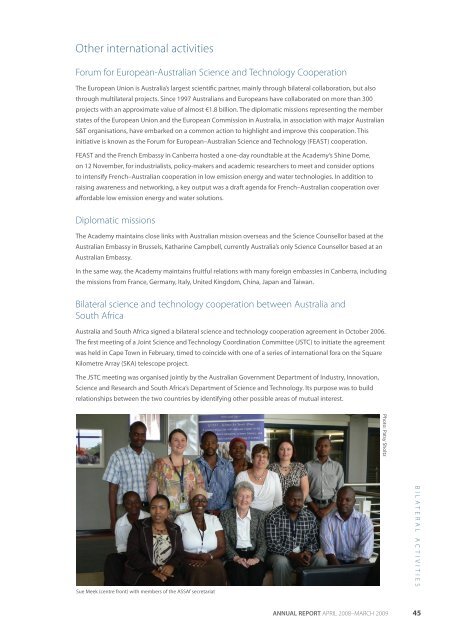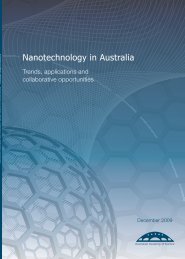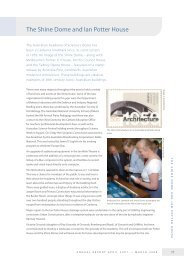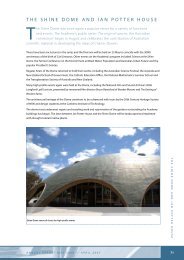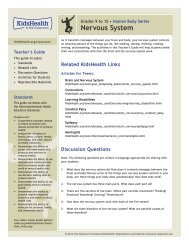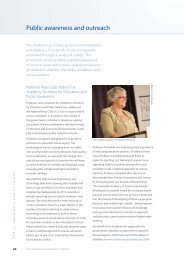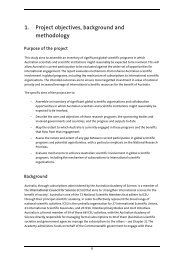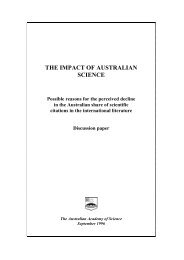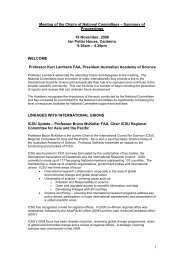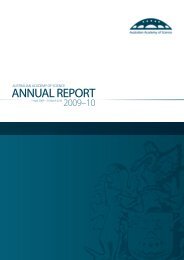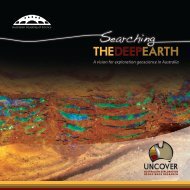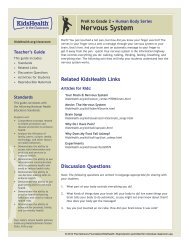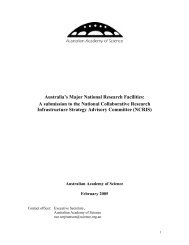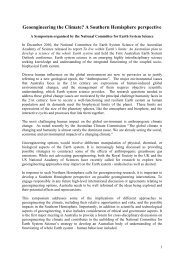full report - Australian Academy of Science
full report - Australian Academy of Science
full report - Australian Academy of Science
Create successful ePaper yourself
Turn your PDF publications into a flip-book with our unique Google optimized e-Paper software.
Other international activities<br />
Forum for European-<strong>Australian</strong> <strong>Science</strong> and Technology Cooperation<br />
The European Union is Australia’s largest scientific partner, mainly through bilateral collaboration, but also<br />
through multilateral projects. Since 1997 <strong>Australian</strong>s and Europeans have collaborated on more than 300<br />
projects with an approximate value <strong>of</strong> almost €1.8 billion. The diplomatic missions representing the member<br />
states <strong>of</strong> the European Union and the European Commission in Australia, in association with major <strong>Australian</strong><br />
S&T organisations, have embarked on a common action to highlight and improve this cooperation. This<br />
initiative is known as the Forum for European–<strong>Australian</strong> <strong>Science</strong> and Technology (FEAST) cooperation.<br />
FEAST and the French Embassy in Canberra hosted a one-day roundtable at the <strong>Academy</strong>’s Shine Dome,<br />
on 12 November, for industrialists, policy-makers and academic researchers to meet and consider options<br />
to intensify French–<strong>Australian</strong> cooperation in low emission energy and water technologies. In addition to<br />
raising awareness and networking, a key output was a draft agenda for French–<strong>Australian</strong> cooperation over<br />
affordable low emission energy and water solutions.<br />
Diplomatic missions<br />
The <strong>Academy</strong> maintains close links with <strong>Australian</strong> mission overseas and the <strong>Science</strong> Counsellor based at the<br />
<strong>Australian</strong> Embassy in Brussels, Katharine Campbell, currently Australia’s only <strong>Science</strong> Counsellor based at an<br />
<strong>Australian</strong> Embassy.<br />
In the same way, the <strong>Academy</strong> maintains fruitful relations with many foreign embassies in Canberra, including<br />
the missions from France, Germany, Italy, United Kingdom, China, Japan and Taiwan.<br />
Bilateral science and technology cooperation between Australia and<br />
South Africa<br />
Australia and South Africa signed a bilateral science and technology cooperation agreement in October 2006.<br />
The first meeting <strong>of</strong> a Joint <strong>Science</strong> and Technology Coordination Committee (JSTC) to initiate the agreement<br />
was held in Cape Town in February, timed to coincide with one <strong>of</strong> a series <strong>of</strong> international fora on the Square<br />
Kilometre Array (SKA) telescope project.<br />
The JSTC meeting was organised jointly by the <strong>Australian</strong> Government Department <strong>of</strong> Industry, Innovation,<br />
<strong>Science</strong> and Research and South Africa’s Department <strong>of</strong> <strong>Science</strong> and Technology. Its purpose was to build<br />
relationships between the two countries by identifying other possible areas <strong>of</strong> mutual interest.<br />
Photo: Patsy Sholtz<br />
Sue Meek (centre front) with members <strong>of</strong> the ASSAf secretariat<br />
BILATERAL ACTIVITIES<br />
ANNUAL REPORT APRIL 2008–MARCH 2009 45


